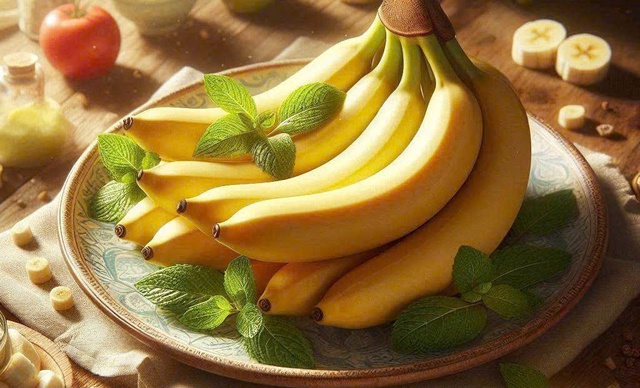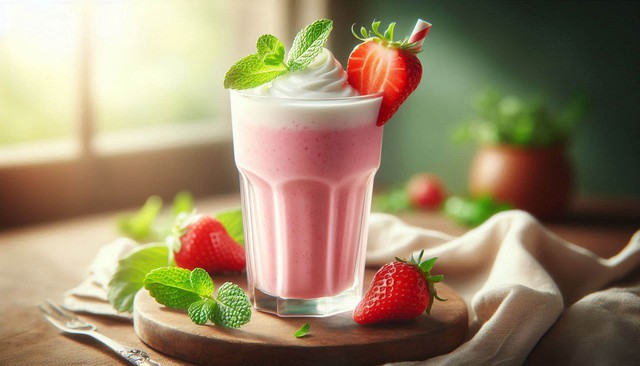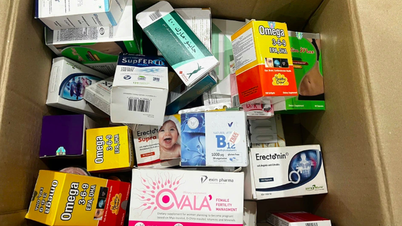New research just published in the scientific journal Food and Function has found that eating bananas is good for the heart, especially in older adults, according to the science news site Scitech Daily.

To maximize the benefits, avoid adding bananas to your smoothie if you want to increase your intake of heart-healthy flavanols.
Photo: AI
Fruits and flavanols
Flavanols are natural compounds that support heart and brain health. The Academy of Nutrition and Dietetics recommends a daily intake of 400-600 mg. Flavanol deficiency, especially in older adults, has been linked to cognitive decline and poor cardiovascular function.
Study co-author Gunter Kuhnle, professor of Nutrition and Food Science at the University of Reading (USA), said: Not consuming enough flavanols can negatively affect cardiovascular health. In older adults, flavanol deficiency also leads to cognitive decline.
But how to best absorb flavanols from foods and drinks?
The researchers wanted to find out how polyphenol oxidase affects the body's ability to absorb flavanols. Polyphenol oxidase is an enzyme found in many fruits and vegetables, but is particularly abundant in bananas.
The unpredictable harm of wearing tight clothes
Lead author Dr Javier Ottaviani, from the Department of Nutrition, University of California (USA), who specializes in flavanol research, said: We wanted to understand, on a practical level, how a popular fruit dish like a banana smoothie could affect the ability to absorb flavanols after eating.
Flavanols are found in apples, pears, blueberries, blackberries, grapes, and cocoa, all of which are popular smoothie ingredients. But is blending them into a smoothie an effective way to absorb the nutrients?
In the study, led by the University of California, in collaboration with the University of Reading, participants drank two smoothies:
- 1 smoothie with banana and berries
- 1 glass of berries only, no banana added
- 1 flavanol tablet as control.
The researchers then took blood and urine samples to measure how much flavanol actually entered the participants' bodies after drinking each smoothie.

If you want to increase the amount of flavanols absorbed from your smoothie, combine flavanol-rich fruits like berries with foods that have low polyphenol oxidase activity like pineapple, oranges, mangoes, or unsweetened yogurt.
Illustration: AI
The results found that when the banana was not mixed into the smoothie (i.e., the banana was eaten separately and the berry smoothie was eaten separately), both the flavanol concentration in the smoothie and the flavanol concentration absorbed by the body were maximized, equal to when taking 1 flavanol capsule.
Conversely, mixing bananas into a berry smoothie reduced the body's ability to absorb flavanols by up to 84%, compared to taking a flavanol capsule as a control, according to Scitech Daily.
Many people like to add bananas to smoothies, but they can affect the amount of flavanols absorbed, says Professor Kuhnle.
Smoothies are a popular way to consume fruits and vegetables. We know from previous studies that flavanols can be broken down by polyphenol oxidase. Surprisingly, adding just one banana was enough to destroy most of the flavanols in the berries.
The best way to eat bananas and fruit
Bananas are a great fruit and can play an important role in many healthy diets. However, to maximize the benefits, avoid adding bananas to smoothies if you want to increase your intake of heart-healthy flavanols.
If you want to increase your flavanol intake from smoothies, combine flavanol-rich fruits like berries with foods low in polyphenol oxidase activity like pineapple, oranges, mangoes, or plain yogurt.
Source: https://thanhnien.vn/phat-hien-bat-ngo-ve-cach-an-chuoi-tot-cho-tim-nhat-la-nguoi-lon-tuoi-185250505212429246.htm




![[Photo] Ready for the top competitions of Vietnamese table tennis](https://vphoto.vietnam.vn/thumb/1200x675/vietnam/resource/IMAGE/2025/5/18/9c547c497c5a4ade8f98c8e7d44f5a41)
![[Photo] Many young people patiently lined up under the hot sun to receive a special supplement from Nhan Dan Newspaper.](https://vphoto.vietnam.vn/thumb/1200x675/vietnam/resource/IMAGE/2025/5/18/6f19d322f9364f0ebb6fbfe9377842d3)






















![[Photo] General Secretary To Lam visits exhibition of achievements in private economic development](https://vphoto.vietnam.vn/thumb/1200x675/vietnam/resource/IMAGE/2025/5/18/1809dc545f214a86911fe2d2d0fde2e8)
































































Comment (0)